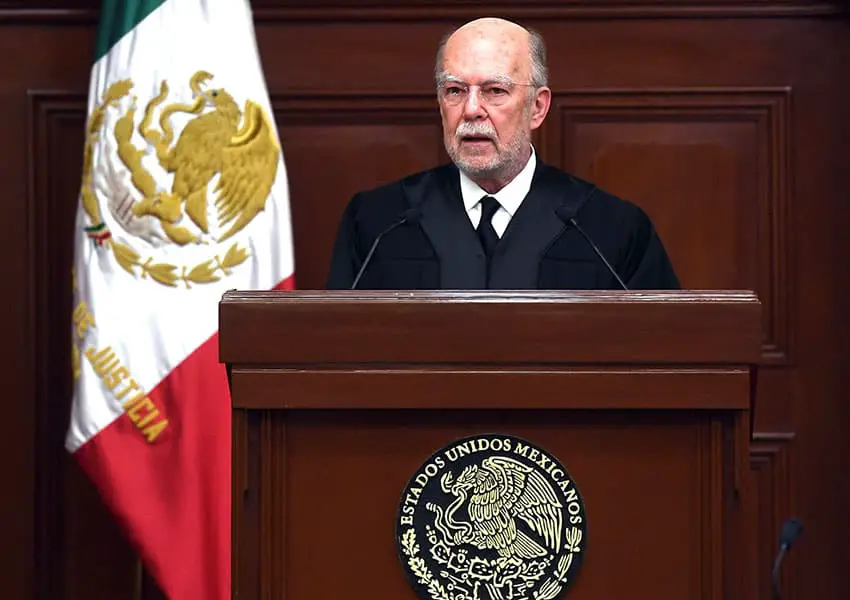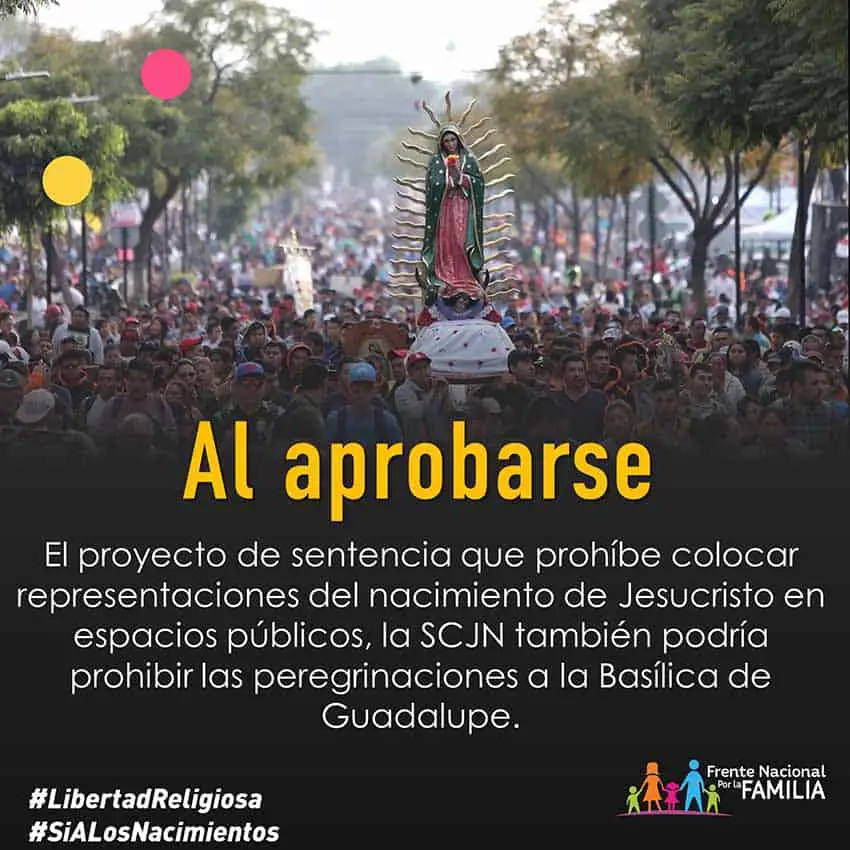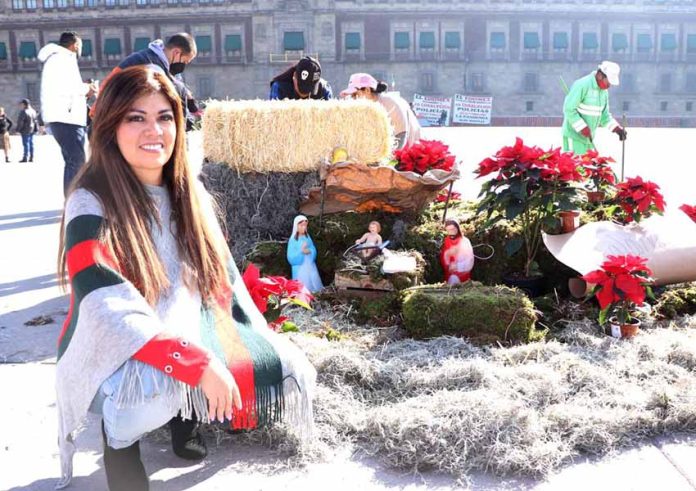Politicians from the National Action Party (PAN) set up a nativity scene in Mexico City’s Zócalo to object to a Mexican Supreme Court justice’s proposal that, if adopted by the Court, would likely result in government funded nativity scenes and other religious displays in public spaces being ruled unconstitutional.
“We will not allow a few liberals to take away our religious freedom and our Mexican traditions,” PAN Deputy América Alejandra Rangel wrote in a Twitter post on her account, in which she shared a picture of herself with a group standing next to a nativity scene.
Posters reading “a birth that changed history” and the hashtags #SíALosNacimientos (“Yes to nativity scenes”) were placed in front of the display she and her companions had set up.
Rangel’s post was in reaction to a draft opinion submitted for Court debate on Nov. 6 by Justice Juan Luis González Alcántara Carrancá, concerning the Court’s hearing of a 2020 case in Yucatán filed by a local nongovernmental human rights organization, Kanan Derechos Humanos.

The NGO filed three amparo lawsuits (a legal resource to seek protection from the government violating constitutional rights) arguing that public nativity scenes that had been installed in the three Yucatán municipalities of Mérida, Chochlá and Mocochá were personal manifestations of worship that shouldn’t have been paid for with public funds and threatened citizens’ constitutional freedom of religion.
The documents also argued that nativity scenes in public spaces discriminate against people who are atheists or non-Christians.
The Court on Nov. 9 postponed discussion of the case until next year. However, soon afterward, Kanan Derechos Humanos reported that it had received threats from people who it believes are misinformed on the matter.
Los ministros de la @SCJN quieren prohibir los nacimientos navideños en edificios públicos, así que pusimos uno afuera de Palacio Nacional.
No vamos a permitir que unos cuantos progres nos arrebaten la libertad religiosa ni nuestras tradiciones mexicanas. pic.twitter.com/BwzYSUTLEy
— América Rangel (@AmerangelLorenz) December 11, 2022
“We won’t let a few liberals steal our religious freedom and our Mexican traditions,” Rangel said in her tweet.
“We think is important to inform, since lack of clarity has led to various threats,” the organization said in a statement, in which it also maintained that the Supreme Court will not be discussing people’s right to practice their religious beliefs in hearing the organization’s case.
“That’s not a subject of debate,” the statement read.
What the Court will discuss, the NGO said, is if the use of public funds to install nativity scenes in public areas and public buildings affects the principles of a secular nation-state.
But the draft opinion has inspired much backlash: early in December, the Conference of the Mexican Episcopate issued a statement rejecting Justice González’s draft document, saying that “religious freedom is a broad right” that includes the freedom of thought, of worship.
The statement also said that agreeing or not with religious principles is also protected.

Numerous social media groups and individuals have also spread fear about González’s draft opinion, stating inaccuracies such as the notion that its adoption by the Court would result in the prohibition of individual religious expression, including home nativity scenes, Catholic feast day parades and pilgrimages.
President López Obrador weighed in on the public debate during his Nov. 28 daily press conference, saying “there is no legal basis” to forbid nativity scenes in public spaces and that he considers such a prohibition a restriction of religious freedom.
A ban on displaying religious figures in public areas would mean canceling “the celebration of a man who has fought the most for the poor, because Christ was a social fighter,” he said.
With reports from Proceso, Infobae, La Jornada Maya
